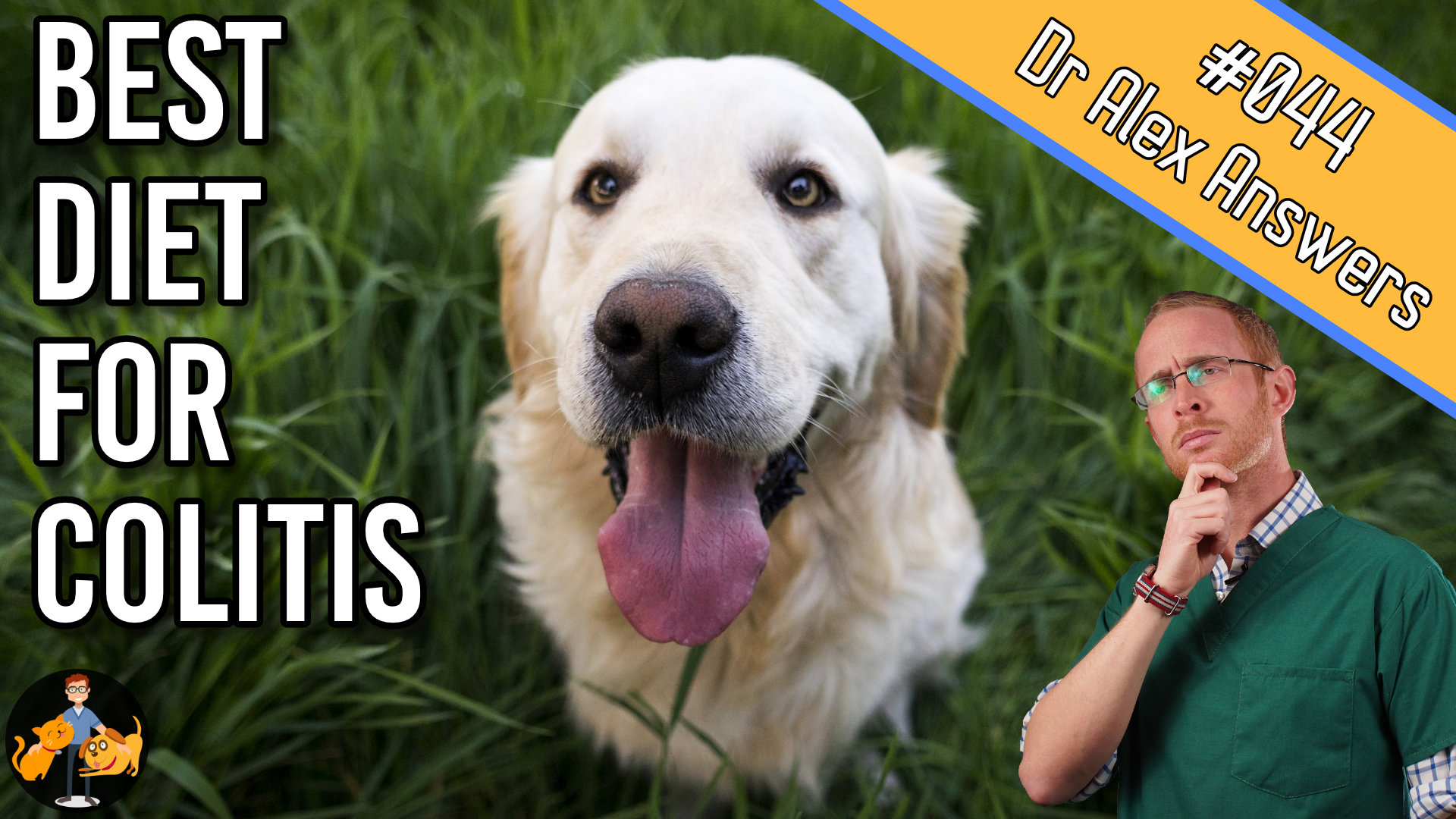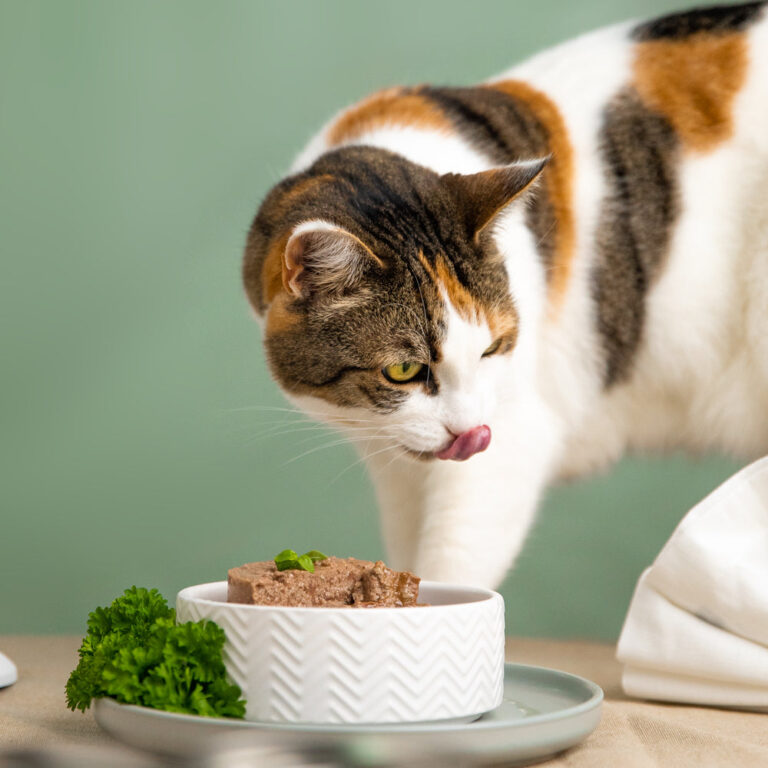To manage Inflammatory Bowel Disease in dogs, feed them a low-fat, high-fiber diet. This usually includes easily digestible proteins and carbohydrates, along with supplementary vitamins and minerals.
Inflammatory Bowel Disease (IBD) is a chronic gastrointestinal disorder that affects dogs and can cause symptoms like diarrhea, vomiting, and weight loss. Proper nutrition plays a vital role in managing this condition. Providing a diet that is easy to digest and rich in high-quality nutrients can help alleviate symptoms and improve the overall health of dogs with IBD.
We’ll explore the best foods to feed a dog with Inflammatory Bowel Disease, as well as provide some helpful tips for managing their condition through diet.
Nourishing Solutions For Dogs With Ibd
Understanding Inflammatory Bowel Disease in canines: Canine Inflammatory Bowel Disease (IBD) is a chronic condition that affects the gastrointestinal tract, leading to digestive issues and discomfort for dogs. The exact cause of IBD in dogs is often unknown, making it challenging to manage. Key dietary considerations for IBD management: When dealing with a dog suffering from IBD, a carefully crafted diet can play a crucial role in managing the condition. A low-fat, high-fiber diet is often recommended to reduce inflammation and support digestive health. This can include easily digestible proteins such as lean meats and novel protein sources. Probiotics and prebiotics also aid in promoting a healthy gut flora. Avoiding potential trigger foods such as grains and certain proteins can also be beneficial. Balanced and carefully portioned meals can help prevent flare-ups and support overall well-being.
Identifying Ibd Symptoms In Dogs
Identifying IBD symptoms in dogs is crucial for their health. Common signs of IBD in dogs include vomiting, diarrhea, and loss of appetite. When these symptoms persist, it is important to consult a vet for a proper diagnosis. Weight loss, blood in stool, and abdominal discomfort are additional indicators of IBD in dogs. Early detection and prompt medical attention are imperative for managing this condition effectively.
Optimal Diets For Canine Ibd
Canine inflammatory bowel disease (IBD) can be managed through specific dietary choices. A hypoallergenic diet can alleviate symptoms by minimizing potential triggers. Introducing novel protein sources can be beneficial as they are less likely to cause adverse reactions. Additionally, it is crucial to ensure a balanced fiber intake to promote gut health and aid digestion. These dietary adjustments play a vital role in supporting the overall well-being of dogs with IBD.
Homemade Meals Vs. Commercial Foods
When it comes to dietary management for dogs with inflammatory bowel disease, choosing between homemade meals and commercial foods is essential. Homemade diets offer the advantage of knowing exactly what ingredients are included, allowing for customization based on the dog’s specific needs. However, it requires careful attention to provide the necessary nutrients and can be time-consuming to prepare. On the other hand, commercial dog food offers convenience and is formulated to meet specific nutritional requirements. It can be easier to ensure a balanced diet, but some products may contain low-quality ingredients and fillers.
When selecting a commercial dog food, it’s important to carefully review the ingredients and choose a high-quality product that is easily digestible for dogs with inflammatory bowel disease. Look for options that are grain-free and contain limited, easily digestible protein sources. Additionally, consider consulting with a veterinarian for specific recommendations tailored to your dog’s individual needs.
Select Nutrients That Aid Ibd
When dealing with a dog diagnosed with Inflammatory Bowel Disease (IBD), it’s crucial to select the right nutrients to support their health. Essential fatty acids play a key role in reducing inflammation and improving the overall condition of the intestines. Incorporating prebiotics and probiotics into the dog’s diet can aid in maintaining a healthy balance of gut bacteria, promoting proper digestion. Moreover, ensuring the intake of essential vitamins and minerals, such as Vitamin B, Vitamin D, and zinc, is necessary to support and improve the overall gut health of the dog.
An Elimination Diet Strategy
Implementing a controlled feeding trial: When feeding a dog with inflammatory bowel disease, it’s essential to begin with an elimination diet. This involves selecting a novel protein and carbohydrate that the dog has not been exposed to. The trial should last for a minimum of 12 weeks to allow for the therapeutic effects to take place. During this time, it’s crucial not to deviate from the prescribed diet. Any additional foods, treats, or supplements could disrupt the trial and hinder accurate evaluation.
Gradually reintroducing foods: Following the elimination diet, the reintroduction of specific foods can help identify potential triggers for inflammatory bowel disease. One should reintroduce one ingredient at a time in small amounts and monitor the dog’s response closely. If there is no adverse reaction, the ingredient can be gradually increased in the diet.
Monitoring your dog’s response: Throughout the process, it’s important to carefully observe your dog’s response to the diet changes. Keep a detailed record of any symptoms, including changes in stool quality, vomiting, and overall well-being. This information will be invaluable in determining the most suitable long-term diet for a dog with inflammatory bowel disease.
Feeding Practices For Ibd Dogs
When feeding a dog with inflammatory bowel disease (IBD), it is important to consider the ideal feeding frequency and portion sizes. Providing smaller, more frequent meals throughout the day can help alleviate digestive issues in IBD dogs. It’s also crucial to pay attention to the impact of food consistency and cooking methods. Opting for easily digestible foods and avoiding overly processed or high-fat meals can make a significant difference in the overall well-being of dogs with IBD.
Managing Ibd Flare-ups With Diet
When managing a dog with inflammatory bowel disease (IBD) during a flare-up, it’s essential to provide a bland diet. This typically involves offering easily digestible foods such as boiled chicken, white rice, and pumpkin. Additionally, introducing supportive supplements like probiotics and digestive enzymes can aid in soothing the digestive system and promoting gut health. It’s crucial to avoid potential trigger ingredients and slowly reintroduce the regular diet once the flare-up subsides. By making these dietary adjustments, you can help alleviate your dog’s discomfort and support their overall well-being.
What To Avoid In A Dog’s Ibd Diet
What to Avoid in a Dog’s IBD Diet
When managing a dog with inflammatory bowel disease (IBD), it is crucial to eliminate common dietary irritants that can worsen their condition. These include foods with high fat content, as they can be difficult for the digestive system to process, leading to inflammation and discomfort. Grains and gluten are known to cause sensitivity in some dogs with IBD, so it’s best to avoid them in the diet. Dairy products can also aggravate symptoms due to lactose intolerance and should be excluded. Additionally, artificial additives and preservatives found in commercial pet foods can be irritating to the digestive tract, so opting for natural, whole food ingredients is advisable.

Credit: ourpetshealth.com
Monitoring And Adapting Your Dog’s Diet
When it comes to feeding a dog with inflammatory bowel disease, it is important to keep a food and symptom diary. This will help track which foods trigger symptoms and which ones are well-tolerated. Additionally, regular check-ins with the vet are crucial for making necessary dietary adjustments based on your dog’s condition.
Frequently Asked Questions On What To Feed A Dog With Inflammatory Bowel Disease
What Is The Best Diet For A Dog With Inflammatory Bowel Disease?
A dog with Inflammatory Bowel Disease may benefit from a limited-ingredient diet, high in fiber, and low in fat. Your veterinarian may recommend a prescription diet or a homemade diet specifically tailored to your dog’s needs. It’s essential to consult with your vet to create the best diet plan.
Can I Feed My Dog With Inflammatory Bowel Disease Commercial Dog Food?
Commercial dog food that is easily digestible, low in fat, and high in fiber can be suitable for dogs with Inflammatory Bowel Disease. Look for brands that offer limited-ingredient options or prescription diets formulated for digestive health. Always consult your vet before making any dietary changes.
What Human Foods Can Help Soothe A Dog’s Inflammatory Bowel Disease?
Some human foods, such as cooked rice, boiled chicken, pumpkin, or sweet potatoes, can help soothe a dog’s Inflammatory Bowel Disease. These bland, easily digestible foods can provide relief during flare-ups, but it’s crucial to consult with your vet before introducing any new foods into your dog’s diet.
Conclusion
Incorporating the right diet for a dog with Inflammatory Bowel Disease is crucial for their health and wellbeing. By following the guidelines provided and working closely with your veterinarian, you can help alleviate the symptoms and improve their quality of life.
Remember to prioritize high-quality, easily digestible foods to support your furry friend’s digestive health. Your pet’s well-being is worth it!



